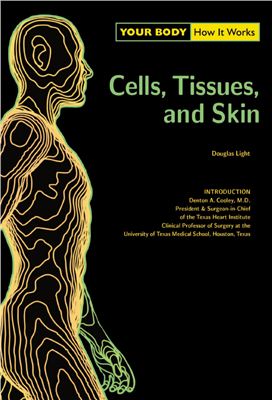Chelsea House Publications, 2003. - 154 pages.
Cells are the smallest units capable of sustaining life, and they make up virtually every aspect of the human body. From the strands of hair at the top of the head to the nails on fingers and toes, every structure of the human body is composed of cells. Groups of cells form tissues and organs, which allow the body to function as an organized system. Skin, the body's largest organ, forms a waterproof barrier that provides protection against invading microorganisms and acts as a sensory and thermoregulatory structure. "Cells, Tissues, and Skin" explores the properties of each of these components in our bodies.
Cells are the smallest units capable of sustaining life, and they make up virtually every aspect of the human body. From the strands of hair at the top of the head to the nails on fingers and toes, every structure of the human body is composed of cells. Groups of cells form tissues and organs, which allow the body to function as an organized system. Skin, the body's largest organ, forms a waterproof barrier that provides protection against invading microorganisms and acts as a sensory and thermoregulatory structure. "Cells, Tissues, and Skin" explores the properties of each of these components in our bodies.

